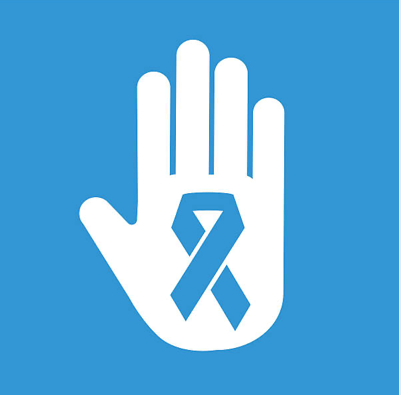Breast cancer may be thought of as a disease that affects only women. It’s the second most common cancer diagnosed in women in the U.S., and it will affect 1 in 8 women, according to the American Cancer Society. Much of the messaging around breast cancer research focuses on the disease in women. However, breast cancer can occur in men, as well. For more information visit Breast self-exam for breast awareness.
An estimated 2,650 new cases of invasive breast cancer will be diagnosed in men this year and 530 men will die from breast cancer, according to the American Cancer Society. Men diagnosed with breast cancer at an early stage have a good chance for a cure.
Male breast cancer treatment often involves surgery to remove the tumor and surrounding breast tissue. Radiation therapy, hormone therapy and chemotherapy also may be recommended. If you’ve been diagnosed with breast cancer, your treatment will be based on the stage of your cancer, your overall health and your preferences.
Learn more about the signs, symptoms and risk factors of male breast cancer at https://www.mayoclinic. org/diseases-conditions/ male-breast-cancer/symptoms-causes/
Diagnosing male breast cancer
Start by seeing your family doctor if you notice any unusual signs or symptoms that worry you. If your doctor thinks you may have breast cancer, you may be referred to a doctor who specializes in treating cancer (oncologist).
Your doctor may conduct a number of diagnostic tests and procedures, such as:
Clinical breast exam.
Imaging tests.
Removing a sample of breast cells for testing (biopsy). A biopsy is the only definitive way to make a diagnosis of breast cancer. During a biopsy, your doctor uses a specialized needle device guided by X-ray or another imaging test to extract a core of tissue from the suspicious area. Biopsy samples are sent to a laboratory for analysis where experts determine whether the cells are cancerous. A biopsy sample is also analyzed to determine the type of cells involved in the breast cancer, the aggressiveness (grade) of the cancer, and whether the cancer cells have hormone receptors or other receptors that may influence your treatment options.
Other tests and procedures may be recommended depending on your particular situation.
Preparing for your appointment
Because appointments can be brief, and because there’s often a lot of ground to cover, it’s a good idea to be well-prepared. Here’s some information to help you get ready and what to expect from your doctor.
What you can do
Be aware of any pre-appointment restrictions, such as not eating solid food for a period of time before your appointment.
Write down your symptoms, including any that may seem unrelated to the reason why you scheduled the appointment.
Write down your key medical information, including other conditions.
Write down key personal information, including any recent life changes.
Make a list of all your medications, vitamins and supplements.
Ask a relative or friend to accompany you, to help you remember what the doctor says.
Write down questions to ask your doctor. List your questions from most important to least important in case time runs out.
For male breast cancer, some basic questions to ask your doctor include:
What type of breast cancer do I have?
What is the stage of my cancer?
Has my cancer spread beyond the breast?
Can my cancer be cured?
Will I need more tests?
What are my treatment options?
What are the potential side effects of each option?
Is there a treatment option you feel is best for me?
How long will cancer treatment last?
How will cancer treatment affect my daily life?
I have these other health conditions. How can I best manage them together?
Should I see a specialist? What will that cost, and will my insurance cover it?
Are there any brochures or other printed material that I can take with me? What websites do you recommend?
In addition to the questions that you’ve prepared to ask your doctor, don’t hesitate to ask questions that occur to you during your appointment.
Determining the extent of the cancer
Once your doctor has diagnosed your breast cancer, he or she works to establish the extent (stage) of your cancer. Your cancer’s stage helps determine your prognosis and the best treatment options.
Tests and procedures used to stage breast cancer may include:
Bone scan
Computerized tomography (CT) scan
Positron emission tomography (PET) scan
Breast cancer stages range from 0 to IV with 0 indicating cancer that is noninvasive or contained within the milk ducts. Stage IV breast cancer, also called metastatic breast cancer, indicates cancer that has spread to other areas of the body.
Breast cancer staging also takes into account your cancer’s grade; the presence of tumor markers, such as receptors for estrogen, progesterone and HER2; and proliferation factors.
Treatment
To determine your treatment options, your doctor considers your cancer’s stage, your overall health and your preferences. Male breast cancer treatment often involves surgery and may also include other treatments.
Coping and support
Receiving a cancer diagnosis can be shocking and upsetting. With time you’ll find ways to cope with the stress and challenges of cancer and cancer treatment. Until then, you might find it helpful to consider:
Talking with someone. You may feel comfortable discussing your feelings with a friend or family member, or you might prefer meeting with a formal support group. Support groups for the families of cancer survivors also are available.
Prayer or meditation. You can pray or mediate on your own or receive guidance from a spiritual adviser or from an instructor.
Exercise. Gentle exercise may help boost your mood and make you feel better. Ask your doctor to recommend appropriate exercise.
Creative activities. Certain activities, such as art, dance and music, may help you feel less distressed. Some cancer centers have specially trained professionals who can guide you through these activities.
Relaxation exercises. Relaxation exercises help refocus your mind and help you relax. Relaxation exercises include guided imagery and progressive muscle relaxation. You can do relaxation exercises on your own, with an instructor or by listening to a recording that guides you through the exercises.
Excerpted from an article by Laurel Kelly, Mayo Clinic
https://newsnetwork.mayoclinic. org/discussion/consumer-health-breast-cancer-in-men/
Exclusive content from CARE Magazine








